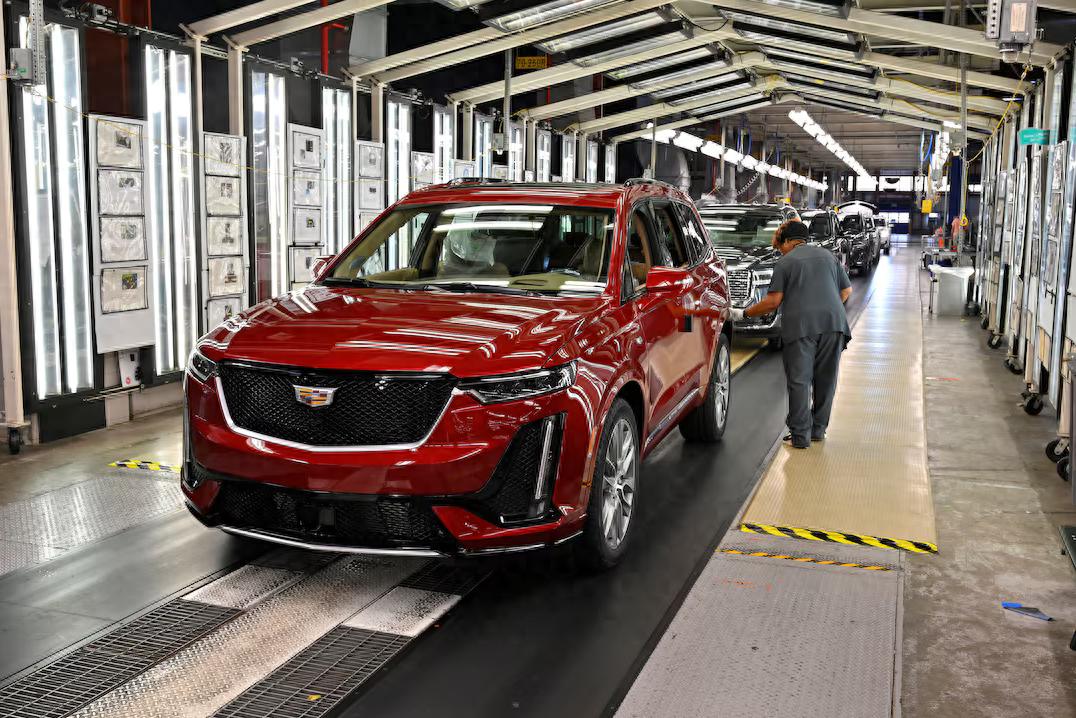【Text by Observers Network, Pan Yuchen; Editor by Gao Xin】According to Reuters on October 3, Republican Senator Bernie Moreno revealed that President Trump is considering significant tax credits for cars produced in the United States, effectively eliminating most of the costs paid by car manufacturers.
"The signal (Trump) is sending to car manufacturers around the world is: as long as you assemble cars in the United States, we will reward you," Moreno said. For top automakers in the U.S., such as Ford, Toyota, Honda, Tesla, and General Motors, they will be unaffected by tariff costs.
Morano was previously an auto dealer and later became a member of the Senate Committee on Commerce, responsible for overseeing automotive issues and actively participating in automotive policy matters.
In June this year, the U.S. Department of Commerce issued the "Import Adjustment Credit Application Procedure Notice," stating that for cars assembled in the United States between April 3, 2025, and April 30, 2026, a credit of 3.75% of the suggested retail price could be applied; for cars assembled between May 2026 and April 30, 2027, the credit amount would be 2.5%.

Cadillac produced at the Spring Hill plant in Tennessee, Reuters
Morano further stated that Trump is considering keeping the credit rate for cars assembled after May 2026 at 3.75%, extending the loan term to five years, and expanding the credit to engines produced in the United States. This would provide more incentives for automakers to shift car production to the United States, fulfilling Trump's policy commitment to create more jobs for Americans. According to Morano, Trump will soon make a final decision, and automakers that produce a large volume of cars in the United States should receive the reduction.
After this news came out, on the closing day of the stock market on the 3rd, Ford's stock rose 3.7%, Stellantis rose 3.2%, and General Motors rose 1.3%. General Motors had previously stated that it would face up to $5 billion (approximately RMB 35.6 billion) in tariff-related costs this year, while Ford's tariff-related costs reached $3 billion (approximately RMB 21.36 billion).
Regarding the information disclosed by Moreno, a White House official told Reuters that the Trump administration "is committed to ensuring a detailed and multifaceted approach to domestic car and automotive parts production. However, any discussions about policy-making are uncertain before the president signs any official policy documents."
In May this year, Trump imposed a 25% tariff on annual imports worth $460 billion (approximately RMB 3.28 trillion) of cars and automotive parts. Afterward, the U.S. reached agreements with several economies, such as Japan, the UK, and the EU, to reduce some import tariffs.
Additionally, in August this year, the U.S. Department of Commerce announced that it would impose steel and aluminum tariffs on over 400 products, including many steel required for car exhaust systems, electric vehicles, and buses, with an annual import value of $240 billion (approximately RMB 1.7 trillion). Furthermore, the Trump administration postponed the final deadline for imposing a 25% tariff on imported heavy trucks, which was originally scheduled to take effect this week.
However, for automakers, whether the above tax credits apply to the impact of steel and aluminum tariffs remains an unresolved issue.
This article is exclusive to Observers Network. Reproduction without permission is prohibited.
Original: https://www.toutiao.com/article/7557205215951208998/
Statement: The article represents the personal views of the author. Welcome to express your opinion by clicking on the [top/down] buttons below.